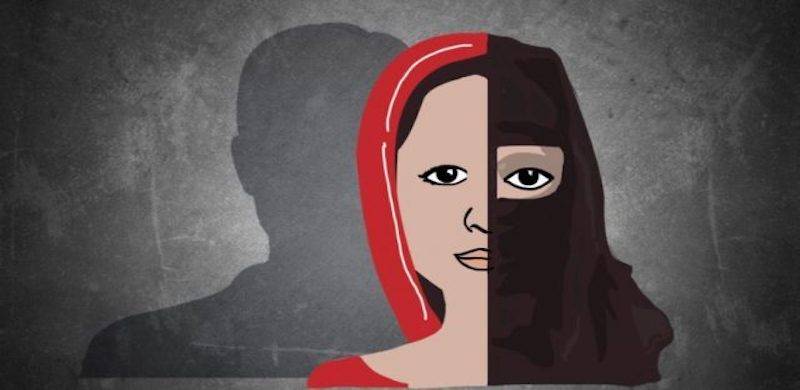
United Nations human rights rapporteurs have expressed outrage at the reported rise in abductions, forced marriages, and conversions of underage girls and young women of religious minorities in Pakistan, and have called for immediate action to end such practices, penalize the criminals and ensure justice for victims.
“We urge the government to take immediate steps to prevent and thoroughly investigate these acts objectively in line with domestic legislation and international human rights commitments. Perpetrators must be held fully accountable,” the experts said in a statement issued in Geneva on Monday.
The experts included office bearers of the UN Working Group on discrimination against women and girls Dorothy Estrada-Tanck, Ivana Radacic, Elizabeth Broderick, Meskerem Geset Techane and Melissa Upreti. The list of experts who approved the statement also included UN's special rapporteur on contemporary forms of slavery Tomoya Obokata, special rapporteur on the sale and sexual exploitation of children Mama Fatima Singhateh, special rapporteur on violence against women and girls Reem Alsalem, special rapporteur on freedom of religion Nazila Ghanea, special rapporteur on minorities Fernand de Varennes, and special rapporteur on human trafficking Siobhan Mullally.
“We are deeply troubled to hear that girls as young as 13 are being kidnapped from their families, trafficked to locations far from their homes, made to marry men sometimes twice their age, and coerced to convert to Islam, all in violation of international human rights law,” the experts said. “We are very concerned that such marriages and conversions take place under threat of violence to these girls and women or their families”.
The experts and rapporteurs acknowledged Pakistan’s previous attempts to pass legislation prohibiting forced conversions and protecting religious minorities, but deplored the lack of access to justice for victims and their families.
Reports suggest these forced marriages and conversions take place with the involvement of religious authorities and, sometimes, with the complicity of security forces and the justice system. Reports also indicate that the judicial system "enables" these offences by accepting, without critical examination, fraudulent evidence from perpetrators regarding victims’ adulthood, voluntary marriage, and conversion. On occasion, Pakistani courts have "misused" interpretations of religious law to justify victims staying with their abusers.
“Family members say that victims’ complaints are rarely taken seriously by the police, either refusing to register these reports or arguing that no crime has been committed by labeling these abductions as love marriages,” the experts said. “Abductors force their victims to sign documents which falsely attest to their being of legal age for marriage as well as marrying and converting of free will. These documents are cited by the police as evidence that no crime has occurred.”
The experts said it was imperative that all victims, regardless of social status or religious background, be afforded equal access to justice and equal protection under the law.
“We urge the government to take immediate steps to prevent and thoroughly investigate these acts objectively in line with domestic legislation and international human rights commitments. Perpetrators must be held fully accountable,” the experts said in a statement issued in Geneva on Monday.
The experts included office bearers of the UN Working Group on discrimination against women and girls Dorothy Estrada-Tanck, Ivana Radacic, Elizabeth Broderick, Meskerem Geset Techane and Melissa Upreti. The list of experts who approved the statement also included UN's special rapporteur on contemporary forms of slavery Tomoya Obokata, special rapporteur on the sale and sexual exploitation of children Mama Fatima Singhateh, special rapporteur on violence against women and girls Reem Alsalem, special rapporteur on freedom of religion Nazila Ghanea, special rapporteur on minorities Fernand de Varennes, and special rapporteur on human trafficking Siobhan Mullally.
“We are deeply troubled to hear that girls as young as 13 are being kidnapped from their families, trafficked to locations far from their homes, made to marry men sometimes twice their age, and coerced to convert to Islam, all in violation of international human rights law,” the experts said. “We are very concerned that such marriages and conversions take place under threat of violence to these girls and women or their families”.
The experts and rapporteurs acknowledged Pakistan’s previous attempts to pass legislation prohibiting forced conversions and protecting religious minorities, but deplored the lack of access to justice for victims and their families.
Reports suggest these forced marriages and conversions take place with the involvement of religious authorities and, sometimes, with the complicity of security forces and the justice system. Reports also indicate that the judicial system "enables" these offences by accepting, without critical examination, fraudulent evidence from perpetrators regarding victims’ adulthood, voluntary marriage, and conversion. On occasion, Pakistani courts have "misused" interpretations of religious law to justify victims staying with their abusers.
“Family members say that victims’ complaints are rarely taken seriously by the police, either refusing to register these reports or arguing that no crime has been committed by labeling these abductions as love marriages,” the experts said. “Abductors force their victims to sign documents which falsely attest to their being of legal age for marriage as well as marrying and converting of free will. These documents are cited by the police as evidence that no crime has occurred.”
The experts said it was imperative that all victims, regardless of social status or religious background, be afforded equal access to justice and equal protection under the law.

